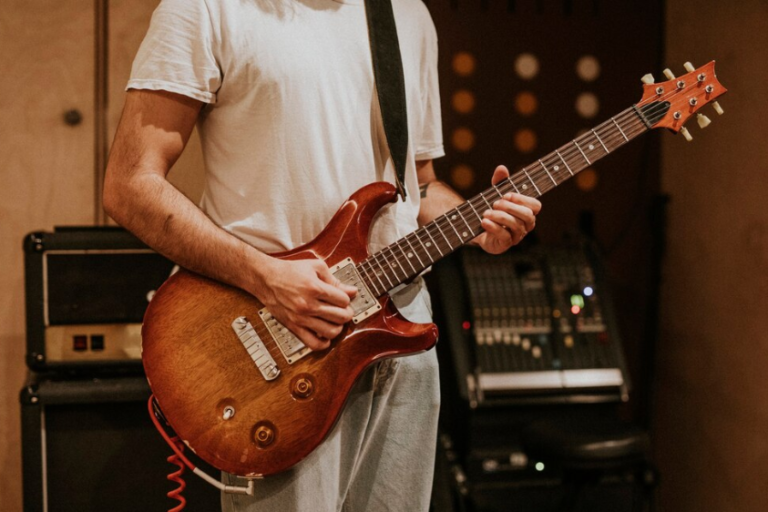5 Great Tips To Overcome Perfection And Enjoy Progress

In this blog, we will talk about improvement over perfection in musical education because sometimes in many aspects of our lives, we want to be perfect in whatever job, career, sport, or talent we perform, losing sight of the fact that we’ll never be perfect but what we can do is to improve so we can make fewer mistakes.
In the world of music, where tunes connect deeply with our spirit, beginning a musical education journey is thrilling yet intimidating. Striving for musical perfection is commonly seen as a quest for impeccable execution and technical accuracy. However, this focus can occasionally eclipse a deeper, more rewarding facet of studying music: the appreciation of ongoing improvement.
The Temptation of Perfection
Perfection in music is frequently seen as the pinnacle for musicians. It is epitomized by the flawless execution of a Chopin nocturne, the precise rhythm of a jazz group, or the unblemished pitch of a soprano’s high note. Striving for error-free performances and achieving perfect harmony in every facet of a piece presents a paradox; it drives musicians to excel yet can also exert overwhelming pressure that may strip away the music’s essence and transform a passionate endeavor into a stressful competition.
This complex attraction to perfection highlights the importance of maintaining equilibrium in musical training and practice. It emphasizes that true artistry is often found not in the lack of faults, but in the distinctive human element that animates the music, forging a bond between performers and audience through a mutual emotional experience.
The Essence of Progress
Progress is the lifeblood of musical education. It emphasizes the significance of valuing each small step forward in one’s musical voyage, in contrast to the often daunting quest for perfection. This perspective honors every minor advancement, acknowledging that these collective gains are crucial to overall development and expertise in music. It redirects the focus from the intimidating ideal of perfection to the fulfilling experience of learning, underscoring the importance of modest achievements like conquering a difficult composition or enhancing emotional delivery.
By valuing progress, musicians learn to view mistakes as important lessons and to appreciate the process of learning music as much as the end result. This outlook cultivates a positive and enduring attitude, motivating musicians to celebrate their individual achievements and find joy in the ongoing journey of enhancement and self-discovery in their craft.
Redirecting The Focus
1. Acknowledging Minor Victories
As part of the concept of this blog, we must gravitate towards improvement over perfection in the musical education field because we should value every little progress, that feeling of accomplishment, and continue learning to improve. This might involve perfecting a challenging chord shift or successfully mastering a complex rhythmic sequence that previously felt unattainable.
2. Appreciating the Process
Music education is more about the journey than the final outcome. By prioritizing progress, learners can take pleasure in the learning experience, discovering new styles, methods, and forms of expression without the burden of reaching perfection.
3. Gaining Insight from Errors
Errors are not only unavoidable; they are essential. Every misplaced note or timing mishap presents a chance to learn, make corrections, and enhance skills. In an environment that values progress above perfection, mistakes are viewed as opportunities for advancement rather than obstacles.
4. Prioritizing Individuality Over Technical Perfection
At its heart, music is an avenue for personal expression. Emphasizing progress enables learners to concentrate on cultivating their own distinctive voice and style, rather than simply striving to emulate the flawless techniques of others.
5. Enduring Inspiration
Chasing perfection may result in disappointment and exhaustion, with goals appearing to move further away with each advancement. In contrast, emphasizing progress provides a more lasting form of motivation, fueled by personal development and the inherent pleasure of creating music.
In the vast world of music education, perfection may appear as the most dazzling star, yet it is the myriad subtle points of progress that truly light the way. By redirecting attention from the distant goal of perfection to the real, daily successes of improvement, learners can experience a more rewarding, enjoyable, and ultimately successful journey in music. After all, it’s the details, the flaws, and the ongoing growth that allow music to deeply connect with the human soul.
If you’re interested in learning an instrument, at Real Brave, we offer an incredible experience like no other place in music lessons for kids and adults by guiding them from the beginning stages of getting to know an instrument all the way through performing for family and friends on stage. Our instructors come from all over the world, bringing extensive experience on a wide range of instruments. Click below and book a free lesson with us!
Author: Daniel Powers Jr, the founder of Real Brave™, serves as the chief inspiration to thousands of students in the Real Brave music instruction program. He’s also the visionary behind PracticePad™, an online platform for live one-on-one online music lessons, lesson tracking, and scheduling. Beyond his entrepreneurial pursuits, Daniel leads a non-profit organization that provides formerly homeless children with access to music education, making a profound impact on their lives. His unwavering dedication to music, innovation, and education continues to inspire individuals to reach their fullest potential while creating positive change in communities. Follow Real Brave on all the socials:
youtube.com/@realbraveinc
twitter.com/realbraveinc
instagram.com/realbraveaudio
facebook.com/realbraveinc







